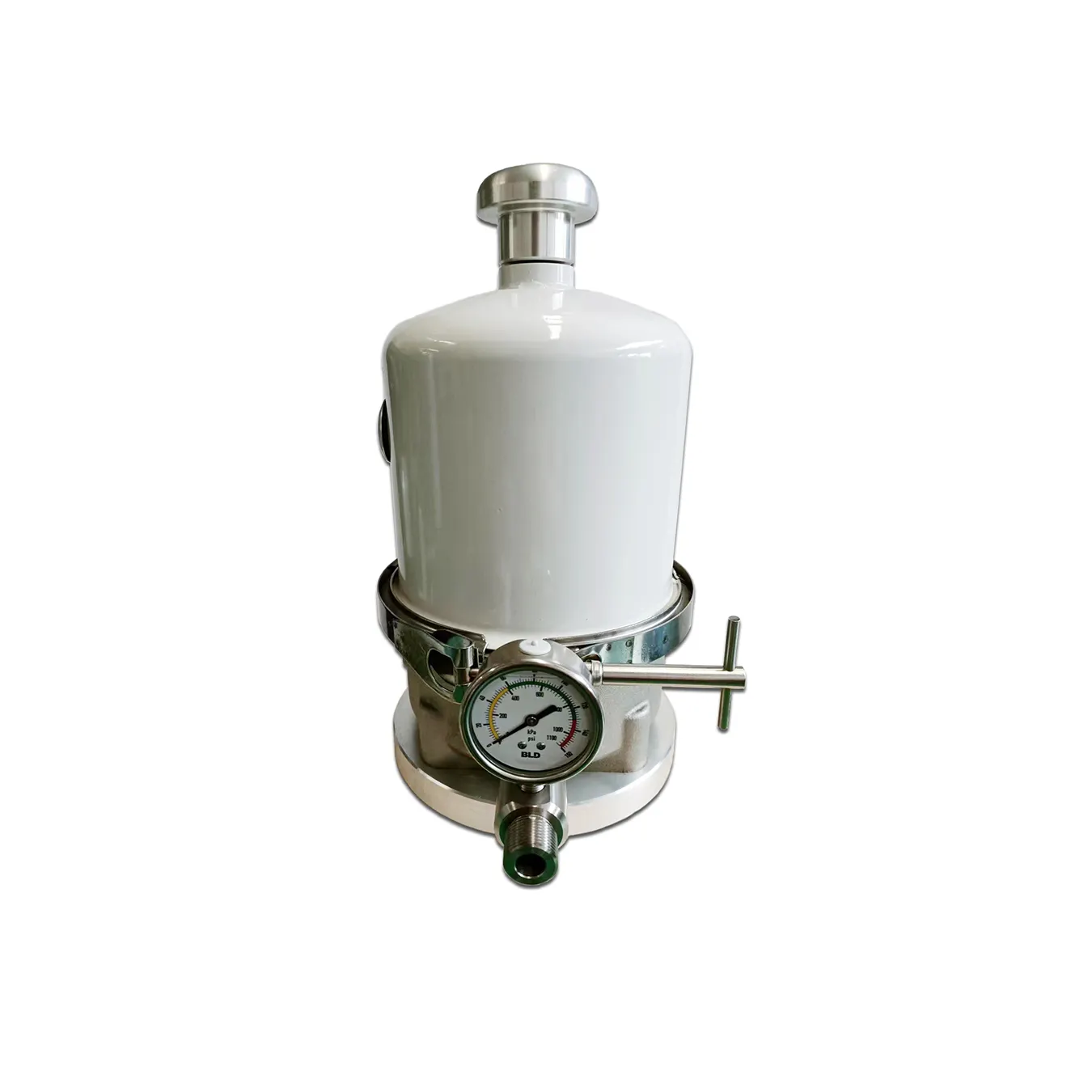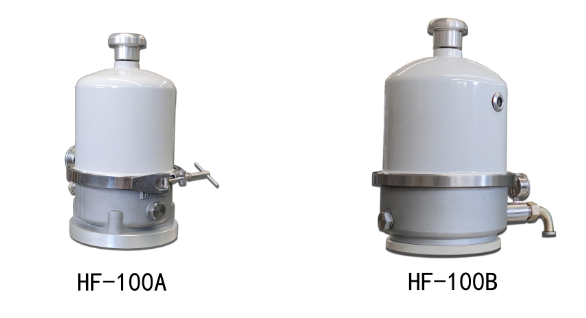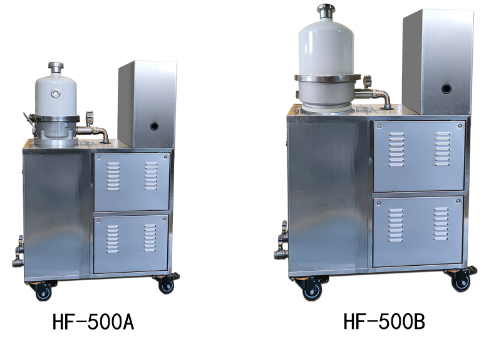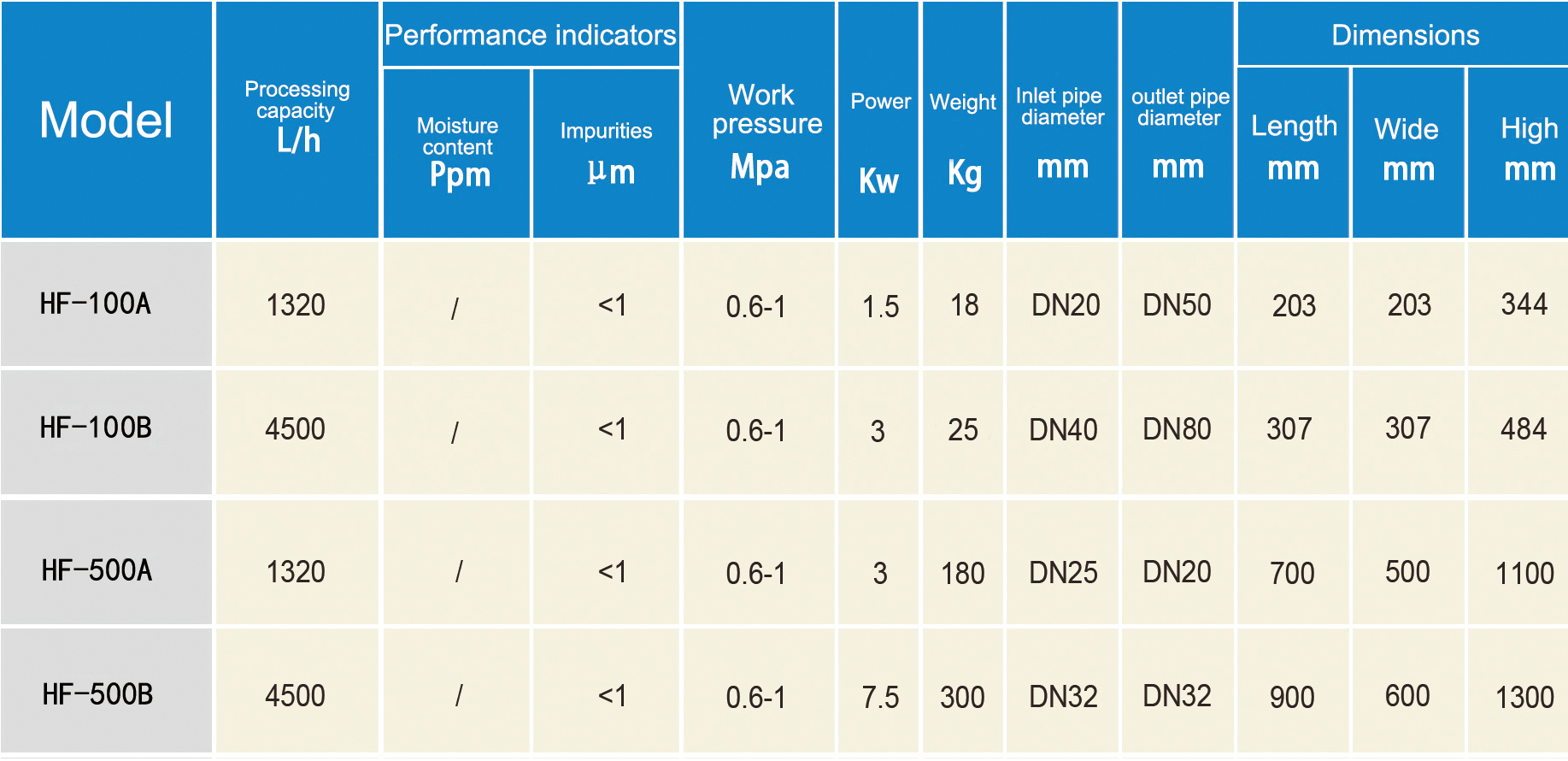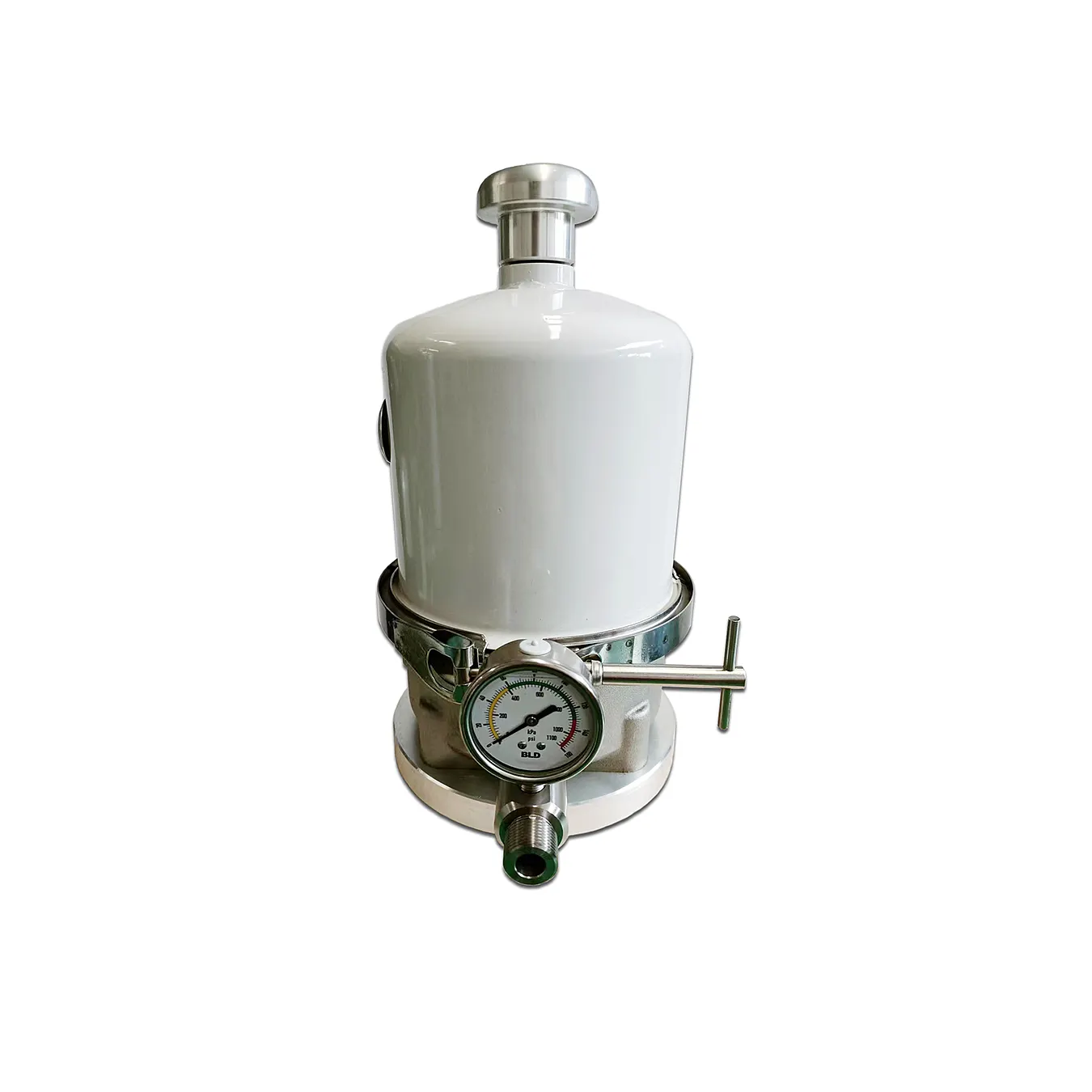
Oil filtration system for the hydraulic oil
Oil filtration systems are specialized equipment used to remove impurities and contaminants from various types of oils, including lubricating oils, hydraulic oils, transformer oils, and more. These systems are designed to maintain the cleanliness and quality of the oil, thereby enhancing the performance and lifespan of the equipment or machinery that relies on it.
Applications
Oil filtration systems find applications in various industries, including automotive, manufacturing, power generation, aerospace, and more. They are used to maintain the cleanliness of oils in engines, hydraulic systems, turbines, transformers, and other equipment.
By employing effective oil filtration systems, industries can reduce equipment downtime, improve operational efficiency, extend the lifespan of machinery, and minimize the risk of costly repairs or replacements. The specific design and features of an oil filtration system can vary depending on the intended application and the requirements of the oil being filtered.
Features
Horizontechnology's oil filtration systems use the centrifugal separation method, has the following advantages:
High Efficiency: Centrifugal separation is highly efficient in removing solid particles and water from oil. It can effectively separate and collect contaminants of various sizes, ranging from large particles to submicron-sized particles. The centrifugal force generated during the process allows for efficient separation, resulting in clean oil.
Continuous Operation: Centrifugal separators can operate continuously, allowing for uninterrupted filtration and purification of oil. They can handle a continuous flow of oil without the need for frequent stoppages, making them suitable for applications that require continuous operation and minimal downtime.
Fast Processing: Centrifugal separation is a relatively fast method for oil filtration. The separation process occurs within a short period, allowing for quick turnaround times. This is particularly advantageous in industries where time-sensitive operations are involved.
Scalability: Centrifugal separators are available in various sizes and capacities, making them suitable for a wide range of applications. They can be scaled up or down to accommodate different flow rates and volumes of oil. This scalability allows for flexibility in implementing centrifugal separation in various industries and applications.
Reduced Maintenance: Centrifugal separators generally have fewer moving parts compared to other filtration systems, which leads to reduced maintenance requirements. They are designed for reliable and long-lasting operation with minimal wear and tear. This helps to minimize maintenance costs and downtime associated with system maintenance.
Versatility: Centrifugal separators can be used for different types of oils, including lubricating oils, hydraulic oils, transformer oils, and more. They are suitable for a variety of industries such as manufacturing, power generation, automotive, marine, and aviation. The versatility of centrifugal separation makes it a widely applicable method for oil filtration and purification.
Extend Equipment Life: By efficiently removing contaminants from the oil, centrifugal separation helps to protect equipment and machinery from premature wear and damage. Cleaner oil with reduced particle contamination can extend the lifespan of critical components, such as bearings, gears, and seals, resulting in improved equipment reliability and reduced maintenance costs.
Advantages
When it comes to oil filtration, the Horizon Technology oil filtration system is a true game changer. This innovative system is designed to complete the filtration process without adding any additional oil to the oil being filtered. This is a major advantage over other filtration systems on the market that can end up diluting the oil or altering its quality in some way.
One of the key benefits of the Horizon Technology oil filtration system is its high filtration accuracy. The system is engineered to remove even the smallest particles and impurities from the oil, ensuring that it is as clean and pure as possible. This is essential for industries and applications where the quality of the oil is critical, such as in manufacturing, food processing, and pharmaceuticals.
In addition to its high accuracy, the Horizon Technology oil filtration system is also highly stable. The system is designed to operate consistently and reliably over long periods of time, even in demanding environments. This makes it a great choice for businesses that need a filtration system they can depend on day in and day out.
Another advantage of the Horizon Technology oil filtration system is its versatility. The system can be used with a wide range of oils, including mineral oils, synthetic oils, and vegetable oils. This makes it a great choice for businesses that need to filter different types of oils for different applications.
Overall, the Horizon Technology oil filtration system is a highly advanced and effective solution for oil filtration. Its ability to complete the filtration process without adding oil and without damaging the quality of the oil is a major advantage, and its high accuracy and stability make it a reliable choice for businesses of all types. If you are in need of a top-quality oil filtration system, the Horizon Technology system is definitely worth considering.
The most important point is that there is no need for high temperature heating, no damage to the oil and the filtered oil can reach the quality of new oil.
The importance of hydraulic oil filtration
Oil filtration system play a critical role in hydraulic oil applications by removing contaminants and maintaining the cleanliness of the oil. The presence of contaminants in hydraulic oil can have several adverse effects on the system and its components. Here are some of the effects of Oil filtration system on hydraulic oil applications:
Contaminant removal: Oil filtration systems are designed to capture and remove various types of contaminants from hydraulic oil, including dirt, metal particles, sludge, and other solid impurities. By trapping these contaminants, the oil filter prevents them from circulating within the hydraulic system. This helps to maintain the cleanliness of the oil and ensures that the system components are protected from abrasive wear and damage.
Extended oil life: The removal of contaminants through oil filtration helps to extend the life of hydraulic oil. Contaminants can degrade the performance of the oil, leading to increased friction, reduced lubrication effectiveness, and accelerated wear of system components. By keeping the oil clean, oil filtration systems help to maintain its quality and lubricating properties, reducing the need for frequent oil changes and saving on maintenance costs.
Improved system performance: Clean hydraulic oil plays a crucial role in maintaining the optimal performance of hydraulic systems. Contaminants can clog valves, restrict flow passages, and interfere with the operation of system components. By removing these contaminants, oil filtration systems help to ensure smooth operation, proper flow, and efficient power transmission within the system. This contributes to improved system performance, enhanced productivity, and reduced downtime.
Protection of system components: Contaminants in hydraulic oil can cause damage to sensitive system components such as pumps, valves, cylinders, and hydraulic motors. Abrasive particles can lead to wear and scoring of surfaces, reducing the lifespan of these components. By capturing and removing contaminants, oil filtration systems help to protect these components from damage, extending their service life and reducing the likelihood of unexpected failures.
Prevention of system failures: Contaminants present in hydraulic oil can lead to system failures and costly repairs. Particles can block or damage valves, seals, and other critical components, resulting in system malfunctions or breakdowns. oil filtration systems help to minimize the risk of such failures by effectively removing contaminants that could cause operational issues. This promotes system reliability and reduces the likelihood of costly downtime.
Compliance with manufacturer recommendations: Many hydraulic system manufacturers specify the use of oil filtration systems as part of their maintenance requirements. By using oil filtration systems in accordance with manufacturer recommendations, operators ensure that their systems operate within the specified cleanliness standards. This helps to maintain warranty coverage and ensures that the system performs as intended.
In summary, oil filtration systems have a significant impact on hydraulic oil applications by removing contaminants, extending oil life, improving system performance, protecting components, preventing failures, and ensuring compliance with manufacturer recommendations. Regular maintenance and replacement of oil filters are essential to maintain the cleanliness and effectiveness of hydraulic oil in hydraulic systems.
